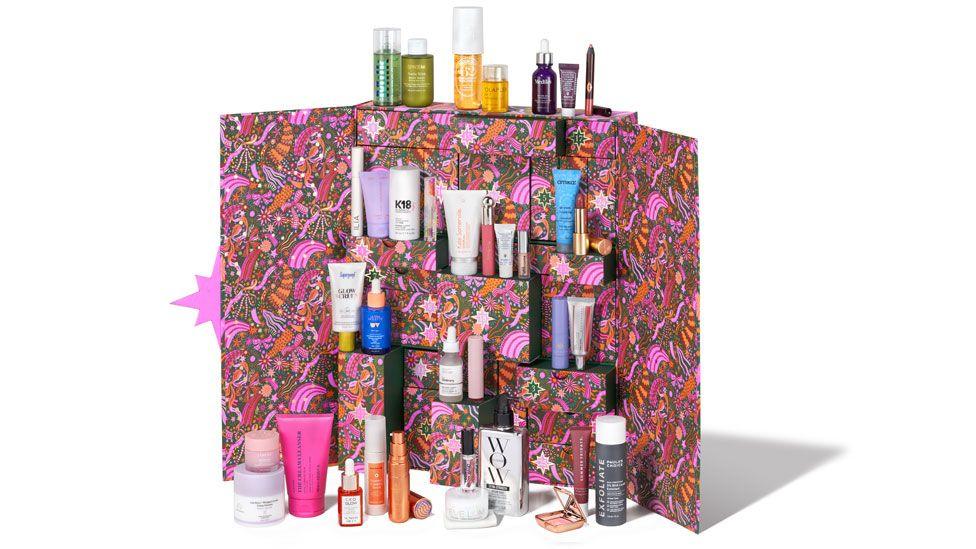Shoppers warned over luxury advent calendar scams

Space NK said it only sells via its own website - and its advent calendar is currently sold out online
- Published
Shoppers looking for a good deal on a luxury advent calendar are being warned to watch out for online scams.
Advent calendars have evolved beyond just offering a picture or a little chocolate behind each door. Now they offer everything from beauty products to luxury food and drink items to jewellery.
The consumer group Which? is urging people to watch out for fraudsters offering deals that appear too good to be true ahead of Black Friday sales.
It comes as cosmetics retailer Space NK urged its customers not to be fooled by fake adverts on social media, claiming to sell its £250 advent calendar for just £28.99.
"We are aware that fraudulent imitations of our website are circulating on social media platforms," said Space NK's Jini Sanassy.
She said customers had been targeted on platforms such as Facebook and Instagram, with ads showing big discounts on items including its advent calendar, which is actually sold out.
"The issue has been immediately reported to Meta and our legal team are working to shut these websites down."
The BBC has contacted Meta, which owns Facebook and Instagram, for comment.
'If it's too good to be true...'
Lisa Webb, Which? consumer law expert, said that as advent calendars had become more luxurious, there were likely to be more criminals targeting consumers buying them.
"Since these products can be expensive, many people will be looking for discounted and cheaper options, but it’s important to be wary of scammers trying to take advantage in the run-up to Black Friday and Christmas," she said.
Black Friday is a holiday sale that traditionally takes place the day after Thanksgiving in the US.
However, over time it has extended across the week, and now retailers often run Black Friday sales across the whole of November.
Last year, scam adverts claimed to offer the £350 advent calendar from perfume and beauty brand Jo Malone for just £30, external.
Ms Webb advised customers to check the URL of any website carefully and to question why something may be at such a low price. "If the deal seems too good to be true, often it is."
She added that any suspicious sites can be reported directly to the National Cyber Security Centre, external.

How to avoid getting scammed online
Be wary of products for sale at too good to be true prices.
Beware fake websites, which look like a genuine retailer's website. Check that the URL is that of the official brand.
Watch out for posts from a newly created social media account, or links to a recently created website. You can use a domain checker like who.is, external to check when a website was created.
Read reviews and only buy from authorised sellers and websites.
Source: Which?
Get in touch
Have you been scammed in your search for a luxury advent calendar?